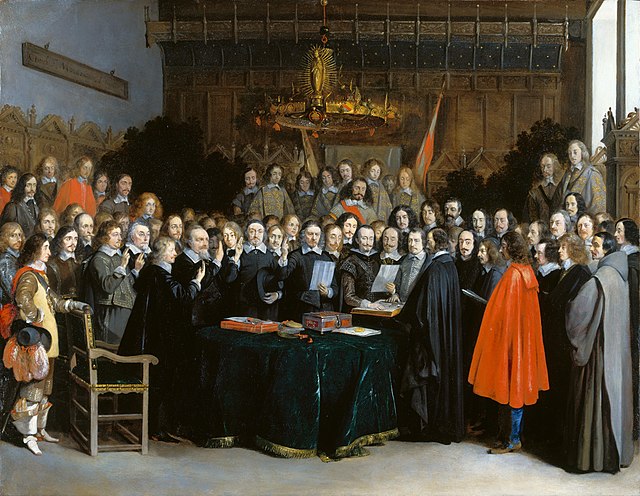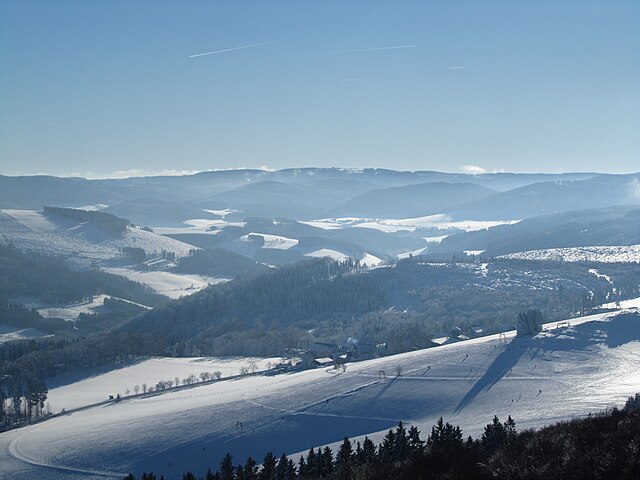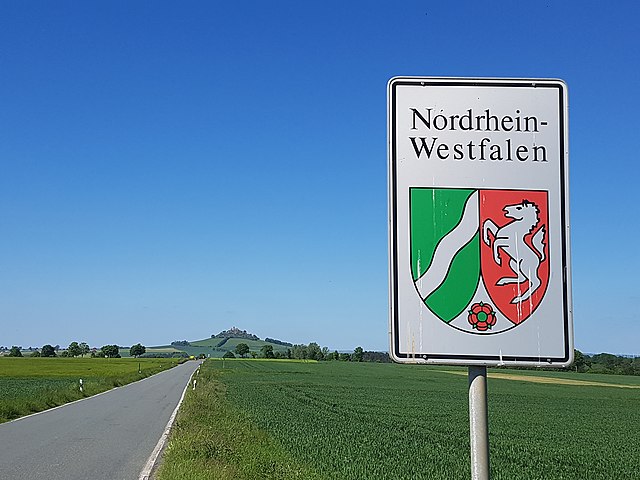Münster is an independent city in North Rhine-Westphalia, Germany. It is in the northern part of the state and is considered to be the cultural centre of the Westphalia region. It is also a state district capital. Münster was the location of the Anabaptist rebellion during the Protestant Reformation and the site of the signing of the Treaty of Westphalia ending the Thirty Years' War in 1648. Today, it is known as the bicycle capital of Germany.
Aerial view of Münster
View from the south-west of Münster in 1570 as seen by Remigius Hogenberg. On the left is the Überwasserkirche, in the centre is St. Paul's Cathedral and to its right St. Lamberti, and on the far right is the Ludgerikirche.
Photo of the Prinzipalmarkt in 1900
Photo of part of the Prinzipalmarkt area around St. Lambert's church in 1945
North Rhine-Westphalia or North-Rhine/Westphalia, commonly shortened to NRW, is a state (Land) in Western Germany. With more than 18 million inhabitants, it is the most populous state in Germany. Apart from the city-states, it is also the most densely populated state in Germany. Covering an area of 34,084 square kilometres (13,160 sq mi), it is the fourth-largest German state by size.
Ratification of the Peace of Westphalia of 1648 in Münster by Gerard Terborch
The highest peaks in North Rhine-Westphalia are located in the Rothaar Mountains.
State border with North Rhine-Westphalia near Warburg; in the background the Desenberg, with 345 m landmark and highest point in the Warburger Börde near the border triangle NRW - Hesse - Lower Saxony
Cologne








